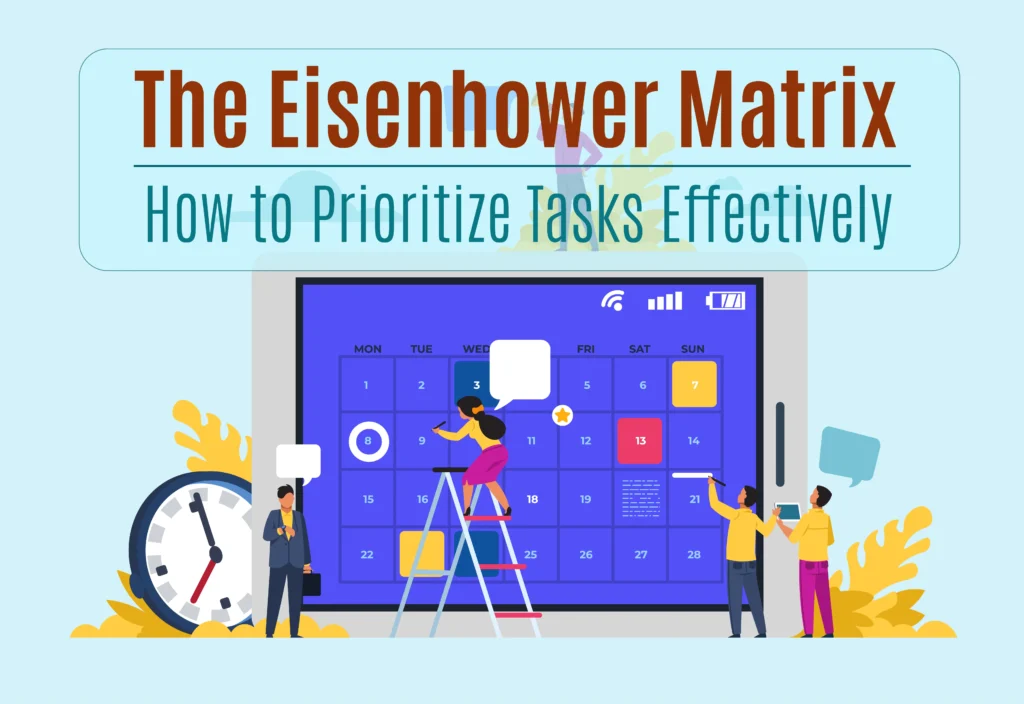How to Build a Strong Startup Team from Day One
Starting a company is a monumental task, and one of the most critical decisions you’ll make is selecting the right team. A strong startup team can significantly impact your business’s chances of success, particularly in those early days when resources are scarce, and every decision counts. For many startups, the strength of the team can make or break their future.
From defining essential roles to fostering collaboration and ensuring long-term commitment, building a strong team is a process that requires careful thought and planning. In this guide, we’ll explore how to build a cohesive, dynamic startup team from day one, including what traits to look for, how to foster a collaborative environment, and how to retain top talent in the early stages of your company’s growth.

Why Team Building is Critical for Startups
At the heart of every successful startup is a well-balanced, motivated team that shares a common vision. The importance of team building cannot be overstated, as a startup’s team drives everything from product development to customer acquisition and scaling.
Impact of a Strong Team on Startup Success
A strong team lays the groundwork for sustainable growth. In the early days of a startup, resources are often stretched thin, and every team member is expected to contribute far beyond their job description. Having a team that is adaptable, skilled, and aligned with the company’s mission will help navigate these challenges.
Early Traction and Growth
The initial months of a startup are critical for gaining traction. Whether it’s developing a minimum viable product (MVP) or acquiring your first set of customers, your team’s ability to execute quickly and effectively will determine how fast your business can grow. A well-rounded team enables the startup to pivot quickly when necessary, respond to market demands, and stay ahead of competitors.
The Role of Culture in Team Building
Company culture is just as important as the skills and experience of the team. A startup’s culture sets the tone for how the team works together, communicates, and overcomes challenges. Building a positive and inclusive culture from day one creates an environment where team members feel valued and motivated.
Establishing Company Culture Early
A strong startup culture is typically characterized by collaboration, innovation, and flexibility. Startups thrive when their teams feel empowered to share ideas and take ownership of their work. Establishing this culture early on will shape the way your team interacts, how decisions are made, and how conflicts are resolved.
Aligning Team Values with Business Vision
For a startup to succeed, every team member needs to be aligned with the company’s mission and long-term vision. When employees are genuinely passionate about the company’s goals, they are more likely to go above and beyond to achieve them. Leaders should communicate the startup’s mission clearly and regularly, ensuring that the team’s values align with the company’s purpose.
Defining Key Roles for a Successful Startup Team
To build a strong startup team, it’s essential to define key roles early on. While startup teams often wear many hats, certain foundational positions are necessary to create a solid operational backbone. Here are the key roles that startups typically require in their initial stages.
Essential Founding Roles
CEO (Chief Executive Officer)
The CEO plays a pivotal role in shaping the startup’s direction and managing overall operations. As the face of the company, the CEO is responsible for making strategic decisions, securing funding, and building partnerships. Early-stage CEOs must be visionaries, able to inspire the team and ensure that the company stays focused on its objectives.
The CEO is also responsible for hiring and setting the tone for company culture. In the fast-paced environment of a startup, the CEO needs to foster open communication and ensure that the team remains aligned with the company’s long-term goals.
CTO (Chief Technology Officer)
The CTO oversees the technological aspects of the company, particularly in tech-based startups. They are responsible for product development, system architecture, and ensuring that the technical infrastructure aligns with the company’s growth objectives. A good CTO needs to be both a hands-on coder and a strategic thinker, capable of scaling the technology as the business grows.
Startups live and die by their products, and a talented CTO can turn a vision into reality by delivering a robust and scalable product.
CFO (Chief Financial Officer)
Even in a startup’s early days, financial management is critical. The CFO manages cash flow, oversees financial planning, and ensures the company has the capital to grow. A skilled CFO will create a sustainable financial model that supports the startup’s long-term vision while managing the risks that come with early-stage growth.
A strong CFO also plays a key role in securing funding, working alongside the CEO to present the company’s financials to potential investors.
Non-Founder Early Hires
Product Manager
The product manager is responsible for turning the company’s vision into a product that solves customer problems. They act as the bridge between the technical team and customer needs, ensuring that the product aligns with the overall business strategy. In a startup, the product manager must be highly adaptable, capable of handling multiple tasks ranging from product design to customer feedback analysis.
Their ability to prioritize features and set a clear product roadmap is essential in keeping the development process focused and efficient.
Marketing and Sales Lead
Without a strong marketing and sales strategy, even the best products will struggle to gain traction. The marketing and sales lead is responsible for generating awareness, acquiring customers, and driving revenue. This role typically involves creating marketing campaigns, managing customer outreach, and setting sales targets.
In the early stages of a startup, this individual may need to work on everything from digital marketing to managing direct sales calls, requiring a broad skill set and a results-oriented mindset.
≫ Related Post: Startup Business 101: Essential Steps to Launching a Business
Hiring for Startup Mindset
Startups are not for everyone. Working in a startup requires a unique mindset, where adaptability, passion, and creativity are more important than the traditional corporate skillset. Here’s what to look for in startup hires.
What Makes a Great Startup Employee?
Adaptability and Multitasking
In a startup, roles can change quickly, and employees need to be adaptable. They must be comfortable taking on tasks that may fall outside their core job responsibilities, often juggling multiple projects at once. Flexibility is key, as the needs of the startup may evolve based on customer feedback, funding, or new opportunities.
Passion for the Mission
Startups thrive on passion. Employees who believe in the startup’s mission and are driven by more than just a paycheck tend to contribute more meaningfully. They’re willing to work long hours, tackle difficult challenges, and help shape the company’s future because they feel personally invested in the success of the startup.
Evaluating Candidates for Cultural Fit
When hiring for a startup, technical skills and experience are essential, but cultural fit can be even more important. A great startup employee is someone who not only has the required skills but also fits into the collaborative and fast-paced environment of the company.
Structured Interviews Focused on Culture
During the hiring process, ask questions that go beyond technical abilities. Structured interviews that focus on problem-solving, adaptability, and teamwork can help you gauge how well a candidate will fit into your company culture. Assess whether they thrive in uncertainty, how they handle stress, and whether they’re aligned with the startup’s mission.
Trial Periods and Probing Questions
Many startups use trial periods or project-based hiring as a way to evaluate how well a candidate integrates with the team. This approach allows both parties to assess whether the fit is right before making a long-term commitment. You can also use probing questions during interviews to understand how candidates respond to challenges and their approach to teamwork.
Building a Collaborative Team Environment
A strong startup team doesn’t just happen. It requires an environment where collaboration, trust, and communication are encouraged. Building such an environment is essential to ensuring that the team functions effectively as a unit.
Encouraging Open Communication
Open communication is the foundation of any successful team. Startups, in particular, need to foster an environment where ideas can flow freely and challenges can be addressed openly.
Fostering Transparent Leadership
Leaders play a critical role in setting the tone for communication within the team. Transparent leadership means being open about both successes and challenges, allowing team members to feel involved in the company’s progress. When leaders are open, team members are more likely to share their ideas and feedback, leading to better decision-making and problem-solving.
Creating Accountability Without Micromanagement
In a startup, accountability is crucial, but no one likes being micromanaged. It’s essential to delegate responsibilities clearly while allowing team members the freedom to execute their tasks.
Delegating Responsibilities Effectively
Startup leaders need to delegate tasks to team members based on their strengths and trust them to deliver results. Rather than micromanaging, create an environment where accountability is a natural part of the culture, with regular check-ins and feedback sessions to ensure that everyone stays on track without feeling stifled.
Team Collaboration Tools and Practices
Effective collaboration requires the right tools and practices. Startups often have to move fast, and streamlined communication and project management tools can help the team stay aligned.
Choosing the Right Communication Tools
Choosing the right tools can significantly impact how well the team collaborates. Platforms like Slack, Asana, and Trello allow team members to stay connected, track progress, and share updates in real-time. These tools help prevent miscommunication and ensure that everyone is on the same page, regardless of their location.
Retaining Talent in the Early Stages
Once you’ve built a strong team, the challenge becomes retaining that talent. Early-stage startups often face high turnover, as team members may leave for more established companies or new opportunities. Here’s how to keep your best talent engaged and committed.
Creating Incentives for Long-Term Commitment
Equity and Stock Options
One of the most effective ways to retain early-stage employees is by offering equity or stock options. This gives team members a personal stake in the company’s success, motivating them to stay for the long haul. Offering equity shows that you value their contribution and see them as long-term partners in the business.
Developing a Positive Work-Life Balance
Avoiding Burnout in a Fast-Paced Startup
Burnout is a real risk in fast-paced startup environments. As much as you want your team to work hard, it’s important to create a healthy work-life balance. Encourage regular breaks, promote flexible working hours, and ensure that team members are not overworked. A sustainable pace leads to higher productivity in the long run and keeps your team motivated and engaged.
Celebrating Wins and Learning from Failures
How to Recognize and Reward Achievements
Celebrating wins, no matter how small, is essential for morale. Recognizing individual achievements and team milestones boosts motivation and reinforces a sense of accomplishment. Whether it’s hitting a sales target or launching a new feature, take the time to celebrate these successes with your team.
On the other hand, learning from failures is equally important. Startups often face setbacks, and how the team responds to these challenges can define the company’s trajectory. Cultivate a culture where failures are seen as learning opportunities rather than setbacks.












